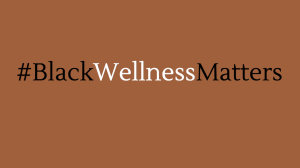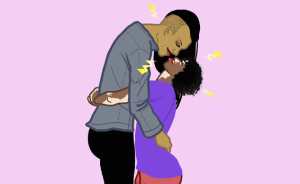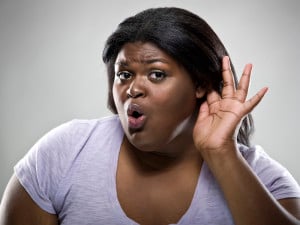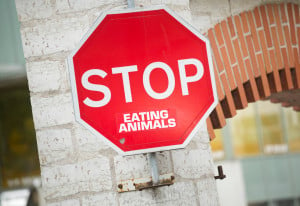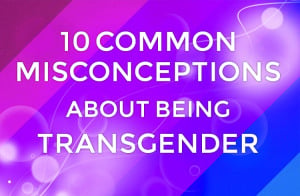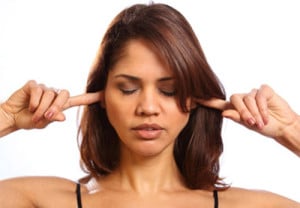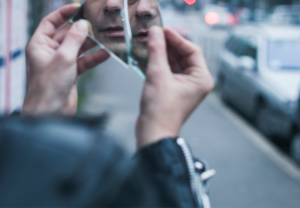I was 14 – one year younger than Dajerria Becton – when I had my first direct physical encounter with a violent, racist police officer.
Four friends and I were walking home from our middle school dance. It was around 9PM, we were in our own neighborhood, and all of us, except for my friend’s big brother (our designated walk-home-chaperone) were middle school students.
A few minutes into our walk, a police car drove up, and the officer behind the wheel asked us where we were going.
We said “home” in unison, and sped up our pace, as we were accustomed to doing when we saw the notoriously racist White police in our predominantly Black, South Florida city.
He drove alongside us and asked us more questions. We stopped answering because we knew better than to talk to the police.
In response, he hastily parked his vehicle in our walking path and spilled out of his car, his eyes narrow and his chest high.
His questions continued, so I asked him why he had driven his car onto the sidewalk, why he had pulled out his flashlight and shine it in our faces on the well-lit street.
The next thing I knew, all 105 pounds of my 7th grade schoolgirl body was hurled against the hood of his car.
My right arm was twisted behind my back, and his left hand, in which he also held a flashlight, was against the back of my head so that my face would stay pressed against the car’s hot hood.
When I reached home and told my mother, she was so angry and adamant that she even seemed angry with me!
She was angry that her daughter had been violated. She was angry that I didn’t get the officer’s badge number. And she was angry that she could not stop it from probably happening again – not to her daughter, not to one of her sons, and not to any other Black person daring to be happy and human while living in America.
Had my mother been told to practice self-care in response to that incident, she probably would have slapped the person telling her that. My mother would have asked back then what many of us are asking today – more than two decades later:
How the hell can we be well in the face of the constant targeting and terrorization of our families, friends, communities, and selves?
There are no easy answers.
Our tendency, because of the burdensome weight of oppression, is to try to put out the fires, to challenge racist opinions, to do and say things publicly in efforts to lift the weight.
We want to do something – anything. Otherwise, the sense of powerlessness and victimization might just consume us.
These actions and desires are necessary for us to survive and to resist, but they won’t help us thrive.
Instead, they often add to the physiological, emotional, psychological, and spiritual impact of anti-Black oppression.
They deal with the hurt and not the healing – and we deserve to heal, to thrive.
It’s time for us to learn to do what might seem impossible today – to figure out how to feel good, to experience joy, and to practice taking care of our physical and emotional selves.
This calls for radical measures like:
- Exploring what it might mean for us thrive, not just to survive
- Making our own emotional needs more important than responding to ignorant statements about non-existent bullshit like the “race card” or “reverse racism”
- Helping to build and support black-owned business so that we become less reliant on White people’s money
- Integrating emotional wellness activities into our organized anti-racism gatherings
These are just some examples, but in doing these sorts of things, we can start making a practice of thriving.
We must start doing things that aren’t just about responding to racism, but about building lives for ourselves outside of – rather than because of — racist oppression.
We are not powerless in the face of oppression, especially when we know how to meet our own needs, how to name our own sources of joy, and how to say no to the some of the most pervasive side effects of oppression.
The Importance of Saying No in the Name of Self-Care
“… I talk a lot about the differences between things we do to survive and the things we do to get free. When I see us, as oppressed people, talking a lot about survival and not talking as much about joy and happiness, I wonder what we’re surviving for.” —Mia McKenzie, Creator of Black Girl Dangerous.
While I know that we can’t thrive if we don’t first survive, I also know that it is neither physically nor emotionally sustainable to try to live our whole lives in survival mode.
Evidence of this is present in the senseless losses of young Black men like Kalief Browder, a 22-year-old who survived being racially profiled, wrongfully arrested, and detained in Riker’s Island without being tried or convicted of a crime, for three years.
Physically, Kalief survived that experience, but mentally and emotionally, he did not survive, much less thrive. Twelve days after his 22nd birthday, Kalief took his own life.
As we continue to focus on our fight to be free from a system that seeks to dehumanize us and break our spirits, we must stand in, and up for, our humanity.
We must seek to understand what makes us happy, what brings us pleasure and peace, and bring more of that to ourselves, for ourselves.
Below are three ways you can start saying no to the pressures of prejudice and yes to the benefits of consistent self-care.
1. Say No to Being the ‘Corrector’ of all the Grossly Misinformed
This first no is about not allowing yourself to be pulled into conversations where you are asked to justify, validate, or otherwise explain why race is a factor in a particular situation.
Let’s say you log onto Facebook after a really difficult and exhausting day, maybe hoping to read something uplifting or hilarious, only to learn about another act of police terrorism against the Black community.
Immediately afterwards, you see a status update by one of your friends who happens to be White.
It reads: “Media makes everything about race so that we get upset and share the negativity. Some people aren’t racist – they’re just stupid! Let’s remember that we’re all one. One love!”
Take a Self-Inquiry Pause: Do you need to respond to her assertion?
Though oppression makes us feel that we always need to be actively affecting change through protest, prayer, teaching, organizing, writing, and saying, we can’t keep expending so much energy on changing the world that we neglect taking care of ourselves.
And taking care of ourselves means knowing when to fight the system and when to focus on our own mental health, so we can counter depression, lack of rejuvenate sleep, and the barrage of stress-related physical sicknesses that come with persistent oppression.
Identify a Self-Care Solution
In this scenario, self-care can look like choosing to journal, or to set a time to write a detailed blog post about insensitive, naïve Facebook rants, instead of addressing it in that moment.
Maybe it’s Wednesday afternoon, and you’ve got deadlines and doubts, school stuff and work stuff on your mind. Can you actually afford to add a virtual back-and-forth about insensitive social commentary to your to-do list?
Instead of going with the (understandable) compulsion to respond, check in with yourself and make it about you, not them.
Oppression is far more effective when the oppressed are also mentally drained and physically ill, so our physical and mental wellness is, in itself, a personal counter-attack on oppression.
2. Say No to Being the ‘Safe’ Black Person (AKA The Black-White Liaison)
This no is about avoiding the pressure to be the approachable Black person at your predominantly white office, school, or community.
There are so many things Black people face that White people don’t have to consider, including managing involuntary liaison status between their entire race and another.
Maya K. Francis’s piece on opting out of the burden of explaining racism and/or Blackness to White people is in itself, a reference guide for this form of self-care.
“I’ve wondered if I’ve become ‘The Black Friend.’ Or maybe I’m…a safe space where good intentioned White folks can ask questions or think through the first-drafts of their thoughts on race and structural inequality. Sometimes, when they get to the part about acknowledging that privilege, that tiny window feels like a confessional as if they want a pardon or an absolution for something.”
Sound familiar? You’re not alone.
Sometimes we do that out of frustration because we feel that it will (finally) show a White person the aspects of institutionalized and systemic racism that won’t be readily apparent to them because they have the shelter of white privilege. Or because we want to support allyship.
Other times, we explain as a way of venting, which is a natural response to constant pressure. But we have other options.
Take a Self-Inquiry Pause: What is my motivation for answering their questions, and how do I feel right now about taking time to offer an explanation?
Identify a Self-Care Solution
Your Blackness is not tethered to an obligation to help other people understand what is happening in America, why it’s happening, and how it feels.
You can:
- Leave the office break room if conversations are being had that state or imply the need for your “Black person’s perspective”
- Remind your non-Black friends and colleagues that all Black people’s opinions are not the same, and that you don’t speak on behalf of the Black population
- Use the opportunity to ask questions instead of offering answers. Ask them why they think x is happening, and if they see it as a racist situation, maybe recommend, like Maya did, that they have the conversation with other White people, instead of you, since you already “get it.”
3. Say No to Being the Imbalanced Version of You
This no is about knowing what self-care look like for you, specifically.
As we collectively navigate living, loving, parenting, and professional pursuits, you may need to feed yourself instances of hope, triumph, pleasure, and peace to smooth out the edges of your struggles.
Take a Self-Inquiry Pause: If you’re upset most of your day, and drained at the end of your day, something has to change.
I know many of us see that as a normal part of adulthood, but it’s not that. It’s a side effect of a high-stress lifestyle, and it makes you more susceptible to stress-related illnesses and mental fatigue, and in some cases, death.
But you do not have to get sick before you look at our most emotionally unsustainable practices.
You do not have to be burned out and self-medicating with shit your body can’t use before you start making more time to understand and put into practice what self-care means for you.
Identify a Self-Care Solution
If you cannot change your schedule, or lessen your workload, then get help figuring out how to add more calming and peace-focused moments into your day.
You need a healthy balance between harsh realities and sweet pleasures.
Here are some great ideas that might jumpstart your creative Time-for-Self juices:
- Read inspiring books about remarkable personal triumph – or steamy books about happy people who have lots of sex
- Support the creativity of often-muted voices by reading books by Black authors
- Make playlists of songs that take you to another place and make them easily accessible to you by using Soundcloud or Pandora or putting them on your phone
- Talk to your children about the things you love, and not just the things you fear
- Explore options for avoiding or being consumed by your obsessive thoughts
- Seek out groups – either online or face-to-face – where you can engage in easy conversations and light-hearted fun
- Follow blogs and social media accounts about things you love (cooking, knitting, hair tutorials, and so on) to balance out the news-based information you take in
- Set the intention to dance and laugh and play more often
We Need to Consider Self-Care Because #BlackWellnessMatters, Too
For sure, the ubiquitous nature of the physical and psychological attacks on Black lives can make it really difficult for us to practice our basic human right to prioritize our own well-being and our own goals/dreams.
And because of this, we need to be even more determined to make it part of our daily ritual to stand in front of a mirror, look into our own eyes and ask, “What can I do to take care of me today?”
We must remember that Black wellness matters, too.
All of this is about practicing compassionate self-leadership by serving all the layers of yourself, bit by bit, especially in the face of constant threats to our bodies and our sanity.
Surviving is vital, but thriving – emotionally, spiritually, mentally, and physically – is the ultimate goal.
When we practice self-care, we can better operate our own bodies and manage our own minds. We can better communicate with our families and friends.
We become better equipped to create life beyond the ills that threaten our ability to thrive.
And thriving is the ultimate weapon against oppression.
[do_widget id=’text-101′]
Akilah S. Richards is a Contributing Writer for Everyday Feminism. She is a six-time author, digital content writer, and lifestyle coach who writes passionately about self-expression, womanhood, modern feminism, location independence and the unschooling lifestyle. Connect with Akilah on Instagram, Tumblr, or her #radicalselfie e-home, radicalselfie.com. Read her articles.
Search our 3000+ articles!
Read our articles about:
Our online racial justice training
Used by hundreds of universities, non-profits, and businesses.
Click to learn more


